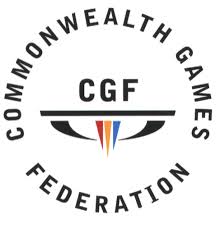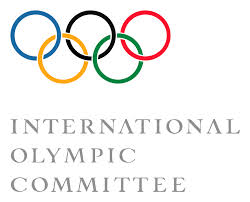By David Grevemberg CBE, CGF Chief Executive Officer
As the temperature dips to minus 8 degrees and the Pyeongchang Olympic Winter Games gets into full swing, you could be forgiven for feeling a world away from Australia’s Gold Coast, which is currently basking in a balmy 28 degrees and warm sunshine. Tomorrow, however, marks just 50-days-to-go until the Games.
What is it that unites these two major international sporting events? The answer is simple. Whilst the lead up to any Games can sometimes feel dominated by logistics, politics, and a lot of background noise, it is the athletes and teams, and the inspiring stories of how and why they choose to wear their national flag on the global sporting stage which truly captures the public imagination. It is the athletes and teams who create defining moments that fill us with adrenaline, pride and ambition. In this age of multi-million-dollar commercial sport, it is the human stories – the likes of which dominate the Commonwealth Games on a regular basis – that grab our attention and pull on our heartstrings.
At the Pyeongchang 2018 Winter Olympic Games, there are 15 Commonwealth nations and territories competing, fielding over 350 athletes: from Australia, Canada, Bermuda, Ghana, India, Jamaica, Kenya, Malaysia, Malta, New Zealand, Nigeria, Pakistan, Singapore, Tonga and United Kingdom (who compete under the British flag, rather than the component nations and territories of England, Scotland, Wales, Northern Ireland, Jersey, Guernsey and the Isle of Man as they do at the Commonwealth Games).
It is no surprise that many of the human stories of commitment, determination and passion are Commonwealth stories, for it is the diverse and dynamic Commonwealth of Nations that has these stories in abundance and tells them so well. The inspiring women of the Nigerian bobsleigh team (Seun Adigun, Akuoma Omeoga and Ngozi Onwumere) making sporting history; the first-ever Ghanian skeleton athlete, Akwasi Frimpong, racing down an icy mountain at 90 miles per hour, telling CNN, “I can motivate kids in Ghana to chase their dreams”; and the former youth-worker and Rio 2016 star Pita Taufatofua who turned from Taekwando to the hardest sport he can find on the snow-less Pacific island of Tonga, cross-country skiing.
Gold Coast 2018, starting in just over 50 days’ time, will be no different. Some of the coldest corners of the Commonwealth – such as the Canadian capital, Ottawa, where the thermometer has been lingering in the minus twenties for days - will stake their claim for greatness as the sun beats down on the Games’ inaugural beach volleyball court; the youngest-ever competitor for Team Wales, and possibly even the Games themselves, Anna Hursey, will take time off school, having qualified to represent her country, aged just 11, in table tennis; the Jamaicans will field their first ever team in the ever-increasingly popular Rugby Sevens; Ugandan women athletes will make sporting history, representing their country for the first time ever at a Commonwealth Games in Netball.
The Commonwealth excels, and one could argue is somewhat unique, in telling these kinds of stories and moments. As the national anthems are played, the flags are carried and raised, it is impossible not to be swept up in the emotion of Commonwealth athletes representing their country, from the smallest Commonwealth member, Nauru, which has a population of just 10,000, to the largest country, India, with over 1.2 billion people.
To these and all Commonwealth Athletes, sport is far more than just competition. Sport connects them – and all of us – with dreams, goals and aspirations for ourselves, our families and our communities. The teams of athletes are a microcosm of the Commonwealth itself. The team colours and flags Commonwealth Athletes wear with pride in competition mark them out as the world’s most diverse fraternity of nations, territories and people. They are the vanguard of a great movement whose purpose has been carried and shared across decades, across generations and across borders.
Through their drive to achieve greatness for themselves, their teams and their loved ones, Commonwealth Athletes stir ambitions and dreams in all of us. On behalf of the entire Commonwealth Sports Movement, the CGF wishes all Commonwealth athletes our very best at the 2018 Olympic Winter Games this week and next; we will support and watch the Commonwealth athletes with pride in what is a truly Commonwealth year. For it is how Commonwealth Athletes make us feel that inspires us to act. They drive the ambition and power of all Commonwealth citizens through sport.

















